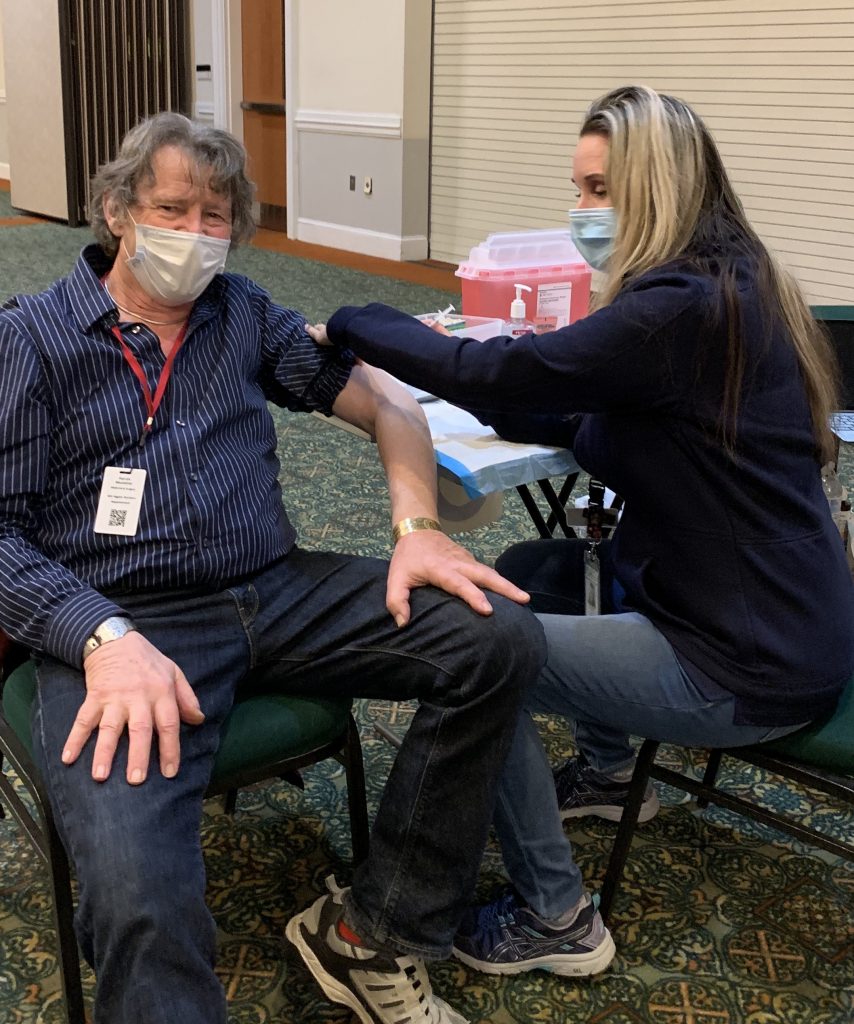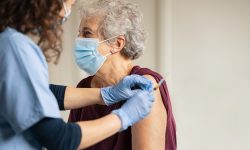There’s not many things I agree with Donald Trump about. But the vaccine being what will save us from the COVID pandemic is one.
There is a catch, however. If enough people don’t get it, we won’t get herd immunity and it won’t save us.
The Magic of Immunization

Hope is vested in immunization because through history they have “made the greatest contribution to global health of any human intervention apart from the introduction of clean water and sanitation” according to a paper published by the Royal Society.
I don’t have to tell you. We have been in the grips of a pandemic that has screwed up our lives, work, schools, socializing, economy. And our harmony – by causing heated debate over what restrictions are necessary.
The first two of six vaccines have reached prime time and seem miraculously effective with an incredible 95 per cent effectiveness. So, if we can immunize enough people, we can make this thing go away – like we have smallpox and polio. Or measles that has gone from 2.6 million deaths worldwide, to 110,000 in 2017 for example.
If enough people don’t get it however, we will not achieve herd immunity – a concept where there are too few susceptible people for the virus to get a foothold.
Experts talk about needing to get to about 70 per cent of the population immune.
Doubters
The mechanism of the corona virus vaccine is a moderately new technology, but simpler than previous ones. It was first tried in animals 30 years ago. It involves injecting a small portion of synthetically produced COVID-19 messenger RNA.
The m-RNA is a “blueprint”, that provides instructions to our cells to produce one of the proteins found in the surface of the COVID virus. This protein then prompts the body to mount an immune response – through a combination of antibodies but mainly by sensitizing B and T lymphocytes. So, if you get exposed to the virus you get a rapid, vigorous response.
I think of it like the National Guard. Our T and B cells are ready to be called out at a moment’s notice.
Getting the shot often causes transient aches and pains, headache and fatigue – which really just tells you it’s working. Your body’s immune system is responding. But people tend to be unnerved by this.
Like any other immunization, or other kinds of shots, there can, very occasionally, people have a severe allergic reaction. But usually, such people will know to be cautious or avoid the shot from previous experience.
An important point is the RNA does not get into the cell nucleus, so cannot alter your DNA, and thus your whole genome – which is one of the unfounded scares being promoted.
There are also claims that the shot includes a microchip that will be injected into your body and The Deep State can track you. This is another misunderstanding. Sometimes the label on some pre-filled syringes includes a microchip to record expiration date, batch number etc. But this doesn’t get injected.
A large part of the resistance is a general anti-vaxxer sentiment. It seems all tied up with a general distrust of big government, healthcare industry, vaccine manufacturers (especially since they got immunity from liability for vaccines) and a nebulous fear of the “deep state” and a desire for freedom and autonomy.
But a lot of the distrust of vaccines is founded on misinformation – most infamous of which was the study by gastroenterological surgeon, Andrew Wakefield, who was the lead author of a paper published in the Lancetclaiming MMR shots cause autism.
These studies were debunked in short order after an outcry pointing out many flaws in the studies and the Lancet printed a retraction. But that doesn’t seem to have stopped lots of people holding on to the idea.
You don’t usually think of the Lancet as being unreliable. But when looking for information – on any medical topic – it’s very important to go to a reliable source. I recommend the WHO Vaccine Safety Net for vaccine information. Or University of Southern California health site gives advice on assessing the reliability of a sites for any information.
Risk Versus Benefit
People ask me “what do you think about this vaccine and are you going to get it?”
My answer is “every healthcare decision, every treatment, every test is a balancing act between the potential benefit and the potential harm.” COVID vaccine is relatively new methodology but is theoretically safer than conventional immunizations that use part of a virus or bacteria, or an attenuated whole organisms.
The 30 years of experience we have, and the lack of serious adverse effects reported from the trials so far, makes it very unlikely it’s suddenly going to come up with some fatal flaw. So, the risk of not getting vaccinated, of getting COVID, seems a far greater danger.
Incidentally if anyone did as intense a risk/benefit analysis on the medicines they take, as they seem to be doing about the COVID vaccine, they’d probably never take any pharmaceutical ever again – look at the potential adverse effects of aspirin for example.
So, like Anthony Fauci, and Mike Pence I intend to get immunized at the first possible opportunity*. And my message is, please do the same – even if you’re reluctant.
Because this isn’t just about you. You can choose to take your chance with COVID, but if enough people are not immunized, it poses a risk to me - and any other old farts, or anyone else who is vulnerable.
I don’t say this often but do what Donald Trump is advocating.
Get immunized.
*I was able to get my first shot last week.



